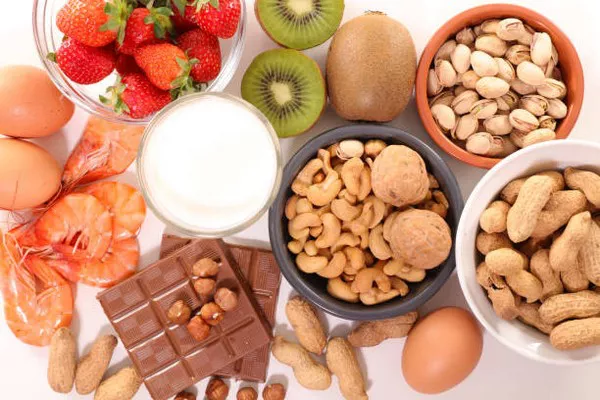Peanut allergies can significantly impact daily life, requiring individuals to adopt a meticulous approach to avoid potential allergens. In this in-depth exploration, we delve into the multifaceted aspects of living with a peanut allergy, offering an extensive guide on what to avoid if you have a peanut allergy.
Understanding the Complexity of Peanut Allergies
Peanut allergies, prevalent among both children and adults, encompass a spectrum of reactions from mild discomfort to severe anaphylaxis. The omnipresence of peanuts and their derivatives necessitates a thorough understanding of what to avoid to mitigate the risks associated with this condition.
See Also: Peanut Allergy Treatments: What You Should Know
Essential Foods to Avoid
1. Peanuts and Peanut Products:
The fundamental step in managing a peanut allergy is to eliminate peanuts and peanut-derived products from one’s diet. This includes obvious sources like peanut butter, but vigilance is also required with processed foods, sauces, and ethnic cuisines that may contain peanuts.
2. Hidden Dangers of Cross-Contamination:
Cross-contamination poses a significant risk. Utensils, cooking surfaces, and shared spaces in both home and restaurant kitchens can harbor peanut residues. Effective communication with food preparers and meticulous attention to food preparation practices are essential.
3. Processed and Packaged Foods:
Careful scrutiny of food labels is paramount. Processed and packaged foods often contain hidden peanut ingredients, and even seemingly unrelated products may be processed in facilities that handle peanuts. Reading labels diligently is a critical habit for those with peanut allergies.
4. Restaurant Dining:
Dining out requires an extra layer of caution. Before choosing a restaurant, individuals should inquire about allergen policies, communicate their dietary restrictions to the staff, and choose establishments with a reputation for accommodating food allergies.
Beyond the Plate: Hidden Peanut Allergens
5. Cosmetics and Personal Care Products:
The presence of peanut oil in cosmetics and personal care items adds another dimension to allergen avoidance. Selecting products with clearly labeled allergen-free formulations is essential to prevent inadvertent exposure.
6. Medications:
Surprisingly, some medications may contain peanut-derived ingredients. Individuals with peanut allergies must inform healthcare providers about their condition to ensure prescribed medications are free from peanut allergens.
7. Art and Craft Supplies:
Vigilance extends beyond the kitchen to art and craft supplies. Certain products like modeling clay and birdseed may contain peanuts, necessitating careful scrutiny, especially for parents of children with peanut allergies.
Navigating Social and Educational Environments
8. Schools and Educational Settings:
Parents of children with peanut allergies play a crucial role in fostering allergy-friendly environments at schools. Collaborating with educators, implementing allergen-free classroom practices, and having a well-communicated emergency plan are essential components.
9. Social Gatherings and Events:
Attending social events demands open communication. Individuals with peanut allergies should be proactive, inquiring about ingredients in dishes, bringing their allergen-free snacks, and remaining vigilant about shared surfaces.
Traveling Safely with a Peanut Allergy
10. Air Travel:
Traveling by air introduces additional considerations for individuals with peanut allergies. Advanced notification to airlines, carrying allergen-free snacks, and wiping down seating areas are recommended practices to minimize exposure risks.
11. Accommodations:
When booking accommodations, individuals should communicate their peanut allergy to hotels or lodging facilities to ensure a safe and allergen-free environment.
Emergency Preparedness and Ongoing Management
12. Emergency Response Plans:
Individuals with peanut allergies should have a well-defined emergency response plan. This includes carrying an epinephrine auto-injector, wearing a medical alert bracelet, and educating friends and family on how to recognize and respond to an allergic reaction.
13. Regular Allergist Check-ups:
Regular consultations with allergists are crucial for monitoring the allergy’s severity and discussing emerging concerns or adjustments to management strategies.
Conclusion:
Living with a peanut allergy necessitates a holistic and proactive approach to avoid potential allergens in various aspects of life. By gaining a comprehensive understanding of potential risks and implementing effective avoidance strategies, individuals with peanut allergies can lead fulfilling lives while minimizing the constant threat of allergic reactions. Staying informed, prepared, and engaged with healthcare professionals ensures that those affected by peanut allergies can navigate the complexities of daily life with confidence and resilience.


